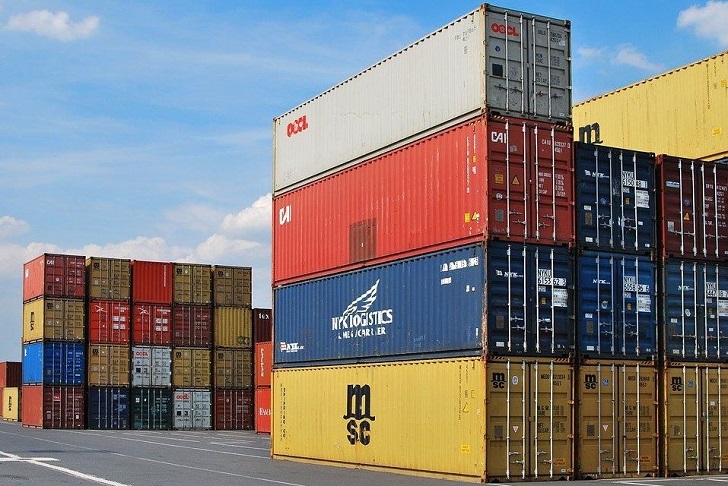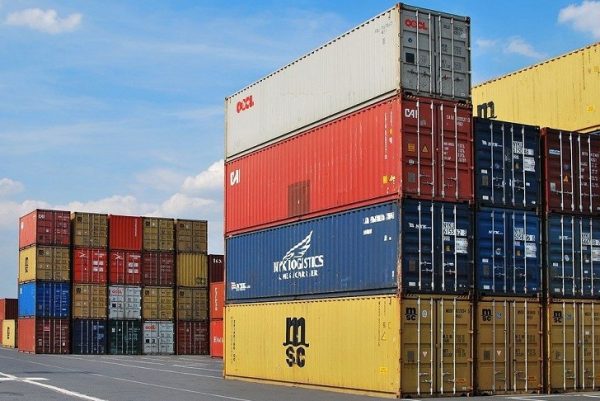One day in June 2015…
…One of my clients contacted me. My memory of the conversation isn’t vivid now but he wanted to know if we could run an export for him.
He asked me if I would – and could. I said yes.
2013. 2014. 2015
2013: I was out of school and thinking strategically around an import idea. And export too. I went on to establish an import company because it was relatively easier and less fraught with challenges.
2013 (Still): I had been thinking about exports, say, a very long time as to why it’s relatively in the shadows in the Nigerian international trade scene.
2014: I had made clear the need for exports to one of my shareholders and felt strongly that there’s need to reverse-engineer imports (especially in our start-up) to achieve balance of trade and balance of payments too; when I was profiled by the Policy Analysis and Research Forum (PAREF) in Nnamdi Azikiwe University, I pitched the idea as an answer to the question of how my company [positively] affects the Nigerian economy.
2015: I said yes to that young man.
Between 2013 and 2015 when I said yes to him and sent products weighing 40kg to Harare, Zimbabwe as a beta test, there were challenges I encountered – challenges that had to be dealt with. I feel these are challenges Nigerians face on the daily when trying to export products from Nigeria to other countries – exporting services to other countries is easier and I’ll dwell on that someday.
Within the past one year, I’ve reverse-tracked the beta test I did in June 2015 and I came up some solutions.
CHALLENGES & SOLUTIONS
Like a broken record, I’ve heard and seen these three challenges in play:
- SOURCING FOR BUYERS
There are many things we can export as products from Nigeria to other parts of the world: Shea Butter, Moringa seeds, Cashew Nuts, Ankara wears, bracelets, etc.
The products are here with us but how do we find buyers who are able and willing to pay? This has been a major challenge but with the Internet, there are two feasible solutions:
- Sourcing for buyers on AliBaba.com: Register on alibaba.com and proceed from there.
- Sourcing for buyers on LinkedIn (via Groups or Channels): I currently follow this group that goes by the name, International Export Import… It has a good mix of people from different countries of the world. That’s a good starting point; find other similar groups.
There are many able and willing buyers on this platform.
- PAYMENTS
Let’s say you’ve landed a client and she intends purchasing Shea Butter from you. That’s awesome! Totally.
The trust factor (or the lack of it) comes in almost immediately: how does she trust that you won’t run away with her money once she pays? If she does Telegraphic Transfer (Wire Transfer), Western Union or Moneygram, you can run away with little or no trace.
Quick Solution I:
Suggest that you deal via an Escrow service: AliBaba.com is one reputable service I know. The process is quite simple:
- She orders from you and pays.
- The funds are held by AliBaba.com
- You source for – and freight/ship – the Shea Butter to her.
- You upload/send the tracking details to AliBaba.com.
- She receives items and confirms.
- com processes and releases funds to you.
- You find a Digital Currency exchange in Nigeria and convert your funds; I’ve been exporting services to the USA for one year now and conversion of digital dollar to naira is very easy: so liquid.
Quick Solution II:
You transact via PayPal. The process is as follows:
- You send her an invoice for payment.
- She receives and pays.
- You freight/ship. If you don’t deliver, she files a dispute against you on PayPal within 180 days and retrieves her money.
3) LOGISTICS & CUSTOMS CLEARANCE
You may freight/ship a phone for a specific amount and then when it gets to the country, you get slammed a bill of ₦12,000-₦20,000 just to clear the phone from Customs. That’s outrageous, right? I think so too. It has happened to an acquaintance once upon a time.
From repeat scenarios that have played out over and over again, the real reason for this is that individuals ultimately get a higher charge than when a logistics company handles this. I don’t know why (but you can ask me and I’ll find out).
Quick Solution:
Deal with a logistics company that handles export and has a good track record of exports (reminder: exports; imports probably); these are indicators that will help you make sane decisions.
Always read the Terms and Conditions of the logistics company handling your exports and ensure you know what you’re dealing with from the get-go.
A question like, “Would I be responsible for Customs clearance?” will be helpful. If the company says no – as expected because most export companies don’t have physical presences in all countries of the world – ensure that your client is pre-informed that she’s responsible for clearance. If the ordered items are being exported to the West, it’s fairly easy to pay Clearance Fees at sane rates (once upon a time, I helped a client pay $25 on DHL.com for items worth way more than $1,000). See? About 2.5%.
There goes!


